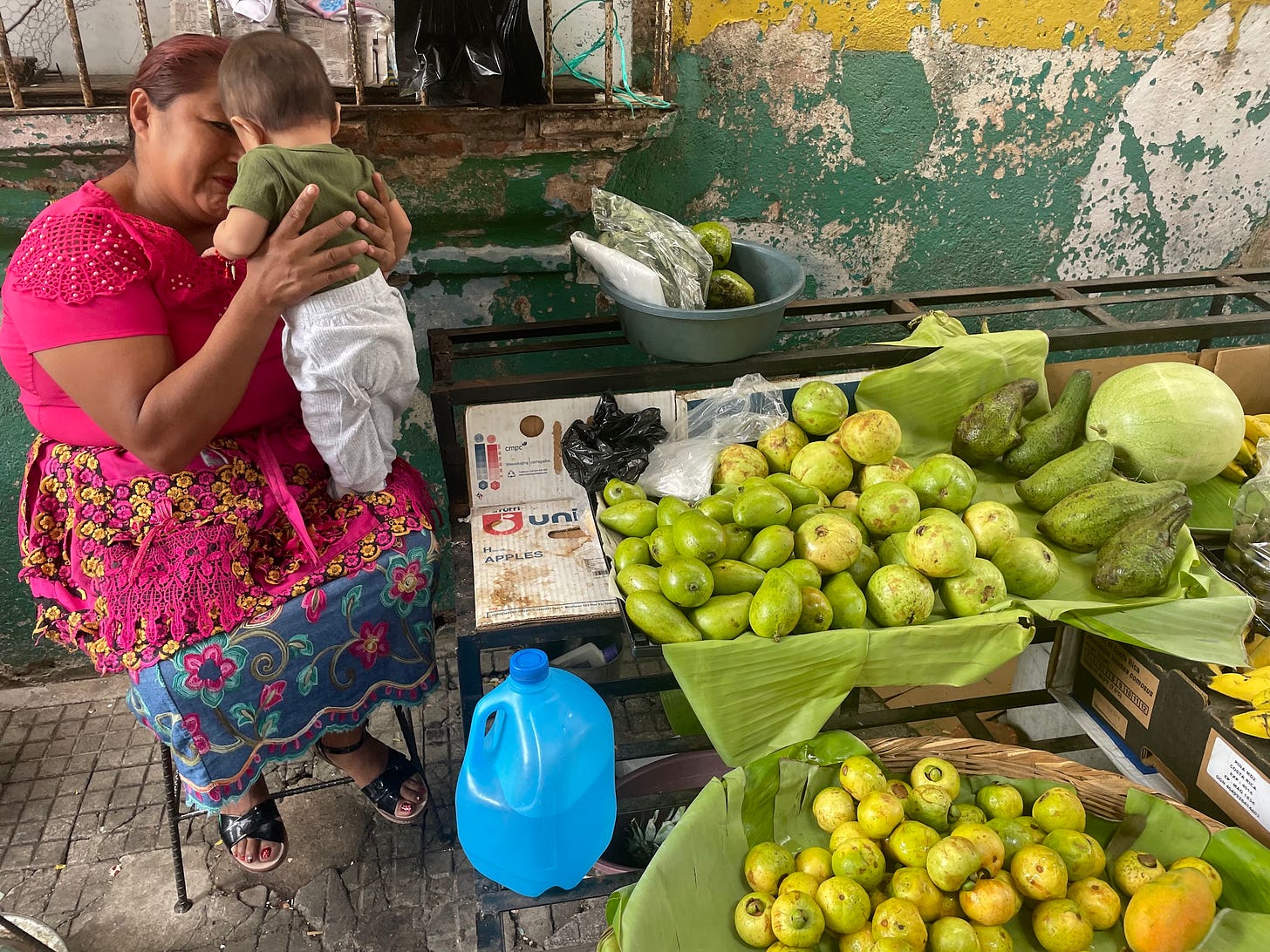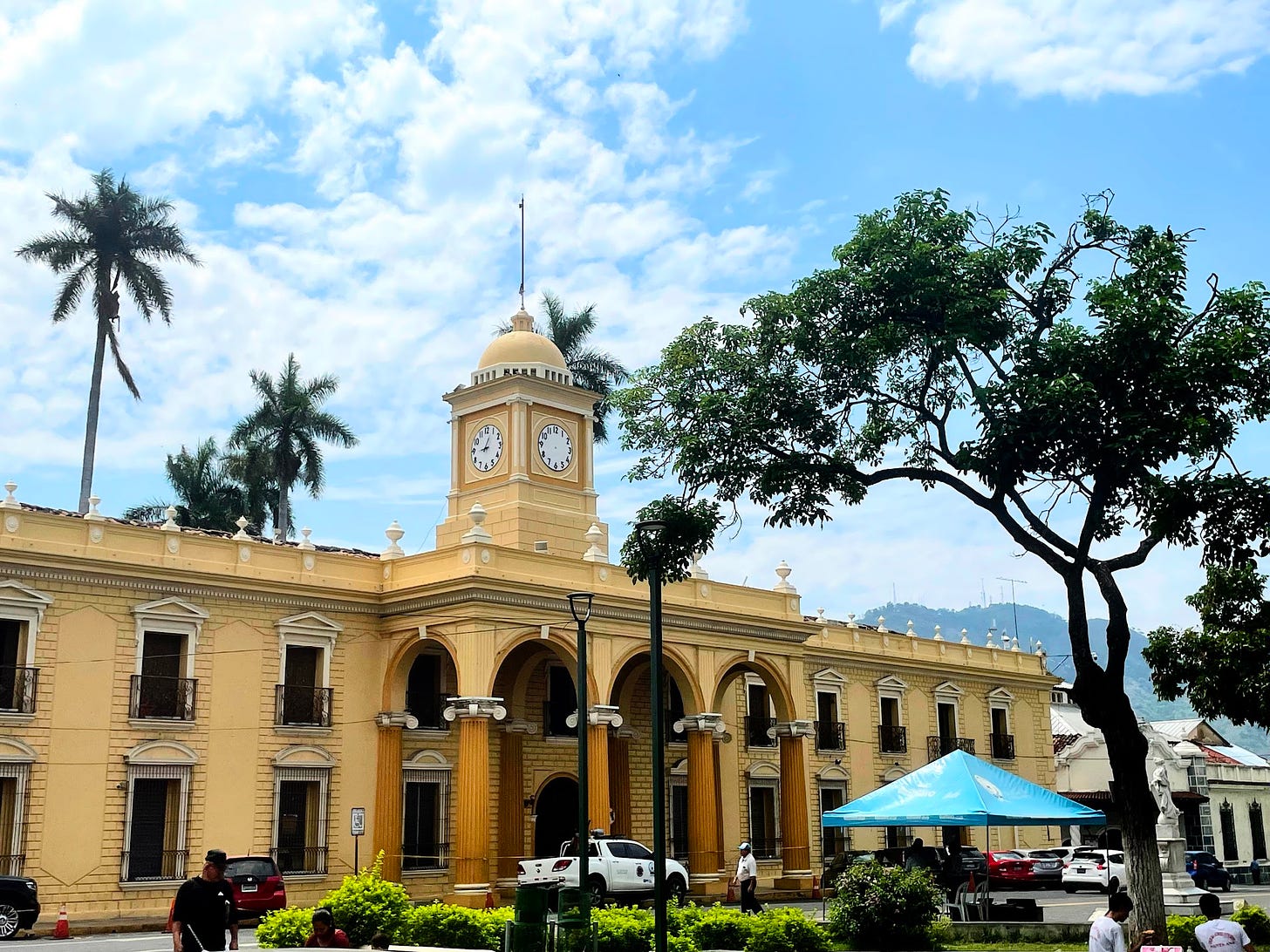Welcome to the third and final post examining Bitcoin’s rollout as currency in El Salvador. We first learned context leading to this moment, and last week asked who crypto is for — whether it will indeed benefit Salvadorans most in need of financial inclusion, or serve primarily to benefit the wealthy and foreign.
Finally today we’ll look at why some Salvadorans use cryptocurrency, and ask: is Bitcoin there really all that interesting, new, and worthy of the hype?
Or is it something more mundane — and imminently, much more replaceable?
Why Should we Care?
Does it even matter what happens with Bitcoin in El Salvador? I think it does.
Besides a love for travel and the recommendations of a friend, I visited the country with genuine curiosity to learn what Salvadorans themselves thought of the cryptocurrency’s official adoption. As we discussed in our first post of this series, Salvadorans face a number of financial challenges worth addressing somehow — high remittance fees, a heavy reliance on cash, and a population that’s ~70% unbanked — all of which can restrict their ability to build credit, save money, receive loans, and access government services.
While I’ve been skeptical of real-world value of crypto in the past, I tried to visit with an open mind. El Salvador has been framed as a proving ground for the efficacy of cryptocurrency in solving some of these problems, and part of me really did want to see it succeed. If Bitcoin can help Salvadorans climb the economic ladder, then it can perhaps do the same for millions, or perhaps even billions, around the world.
While much of the excitement around El Salvador’s Bitcoin adoption comes from the crypto community itself, others — some with deep experience building successful technologies used in the Global South — seem to think it can do good there, too. Erik Hersman has a long record creating and writing about technologies used widely by citizens and NGOs in Sub-Saharan Africa, like Ushahidi and BRCK. He and others recently founded GRIDLESS, which aims to utilize excess hydropower in parts of rural Africa to mine Bitcoin, thus subsidizing the cost of electricity for certain communities. (Though it’s worth noting that the community benefit isn’t necessarily derived from cryptocurrency itself, but rather the value placed on it by the rest of the world — but still, it’s something.)
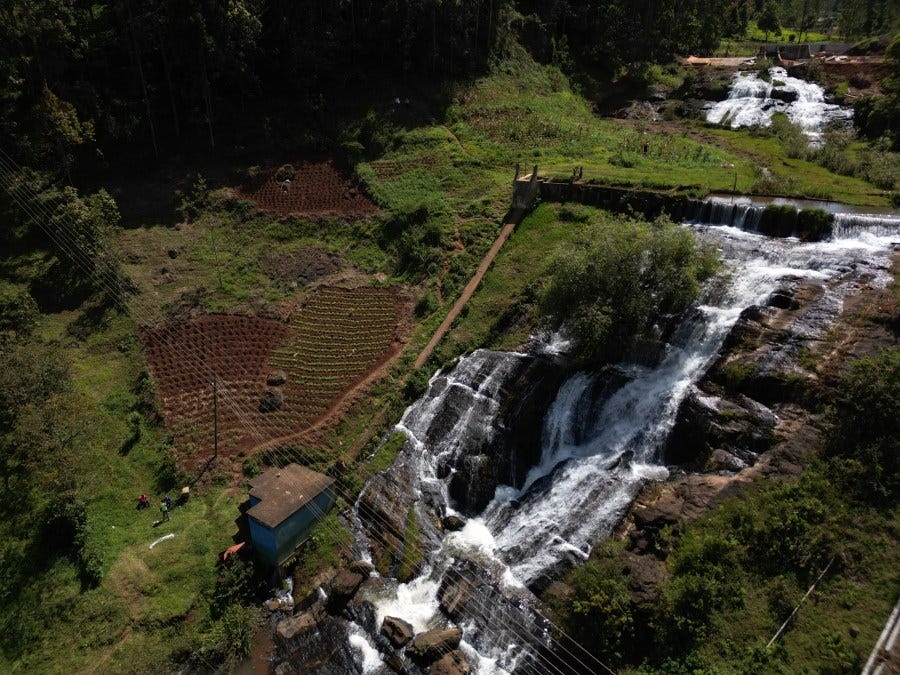
Attempts to integrate Bitcoin into real-world economies aren’t limited to El Salvador. Similar schemes have launched over the past several years in places like Guatemala, Brazil, Philippines, Central African Republic and Venezuela — though these latter two jumped off the crypto bandwagon before it really even started moving.
So I believe it’s worth learning just how useful — or not — Bitcoin is in El Salvador. Because if it can bring benefit there, it can perhaps help many others.
And if it’s not? Perhaps then we can finally recognize crypto hype as just that: hype.
If cryptocurrency can benefit Salvadorans, it can perhaps help millions, or billions, of others. But what if it’s not useful?
Or if it’s useful for very different, much less revolutionary, reasons than we’d expect?
“You don’t have to carry cash”
A problem with the coverage around cryptocurrency is that it can feel Biblical — framed either as a savior coming to save the world, or a devil that will doom it. But what if it’s just another piece of technology, as mundane as Venmo, AliPay, or PayTM?
We already discussed how little Bitcoin is used in El Salvador today, despite its adoption as legal currency nearly three years ago. Despite a $30 incentive provided to anyone registering with the government’s digital wallet, researchers noted in December that, “most people who spent their [$30 Bitcoin] bonus didn’t continue to use the app after doing so.”
But many businesses I visited in El Zonte — “Bitcoin Beach,” the beating heart of El Salvador’s cryptocurrency adoption — did tell me they accept Bitcoin. I even met a few individuals there who said they use it, and I was eager to learn why.
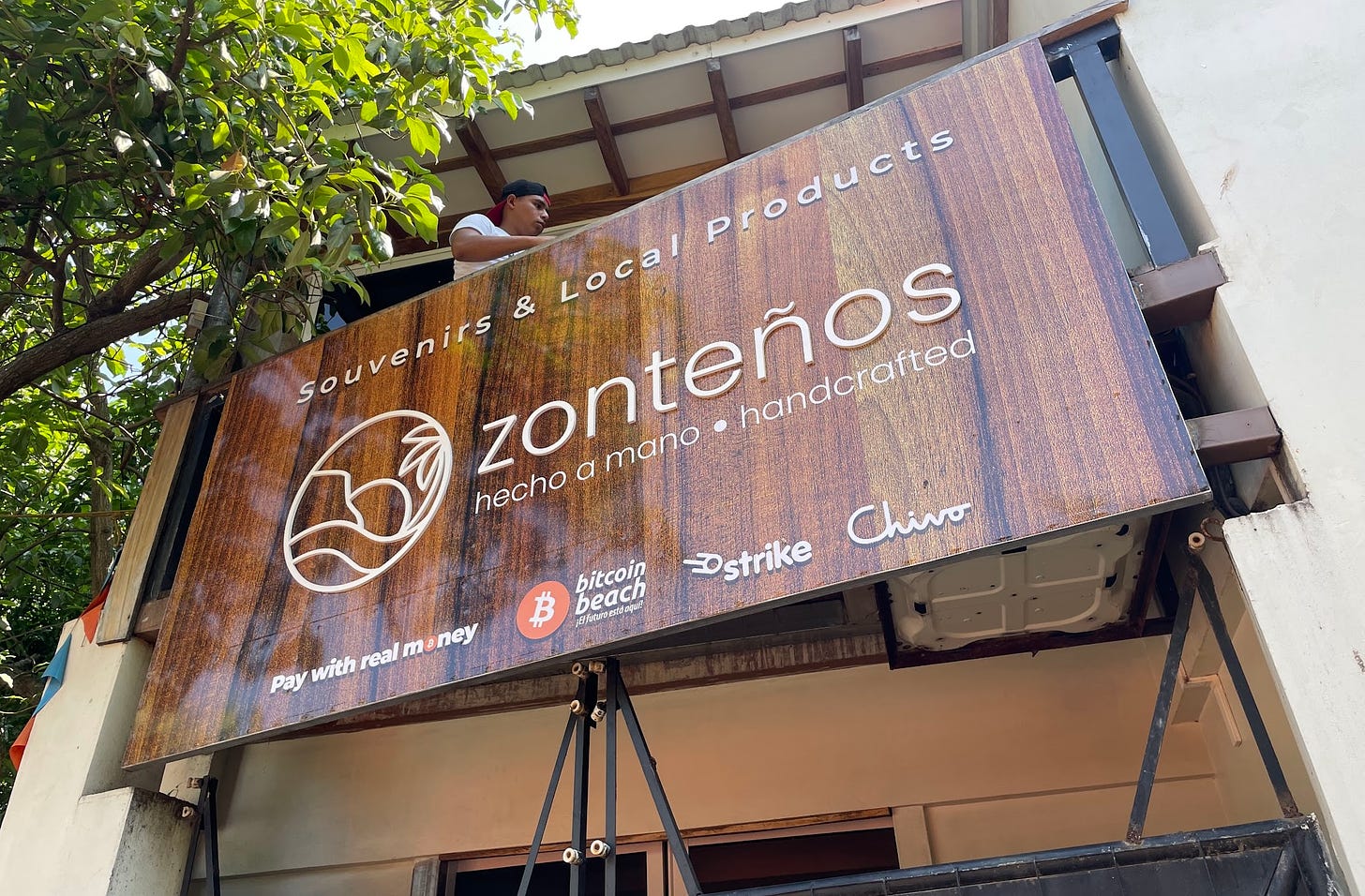
One I met was a barista named Elizabeth, who said she likes to use the digital currency because it’s easy — “you don't have to have cash, or make change.” She uses the app for tips, keeping about $20 worth of Bitcoin in her app account to send to others, like a slush fund. This sounded to me not unlike how many I know in the US will keep small dollar totals in their Venmo accounts, never bothering to cash out. And Elizabeth didn’t keep much of her money in the app as Bitcoin at any one time — she told me she transfers the majority to US dollars, which she feels is more stable.
Larry, her coworker, said something similar — that the crypto apps are nice, especially for tips, and that he transfers any decently large Bitcoin sums he receives into dollars. (Though he does sometimes move dollars into Bitcoin if the price comes down, treating it like an investment.)
I looked back at what I’d been told by others that week, and it struck me: most I met who liked Bitcoin didn’t seem to like Bitcoin per se, so much as they like the convenience of digital payments. But whether that meant using crypto or dollars or anything else didn’t much seem to matter.
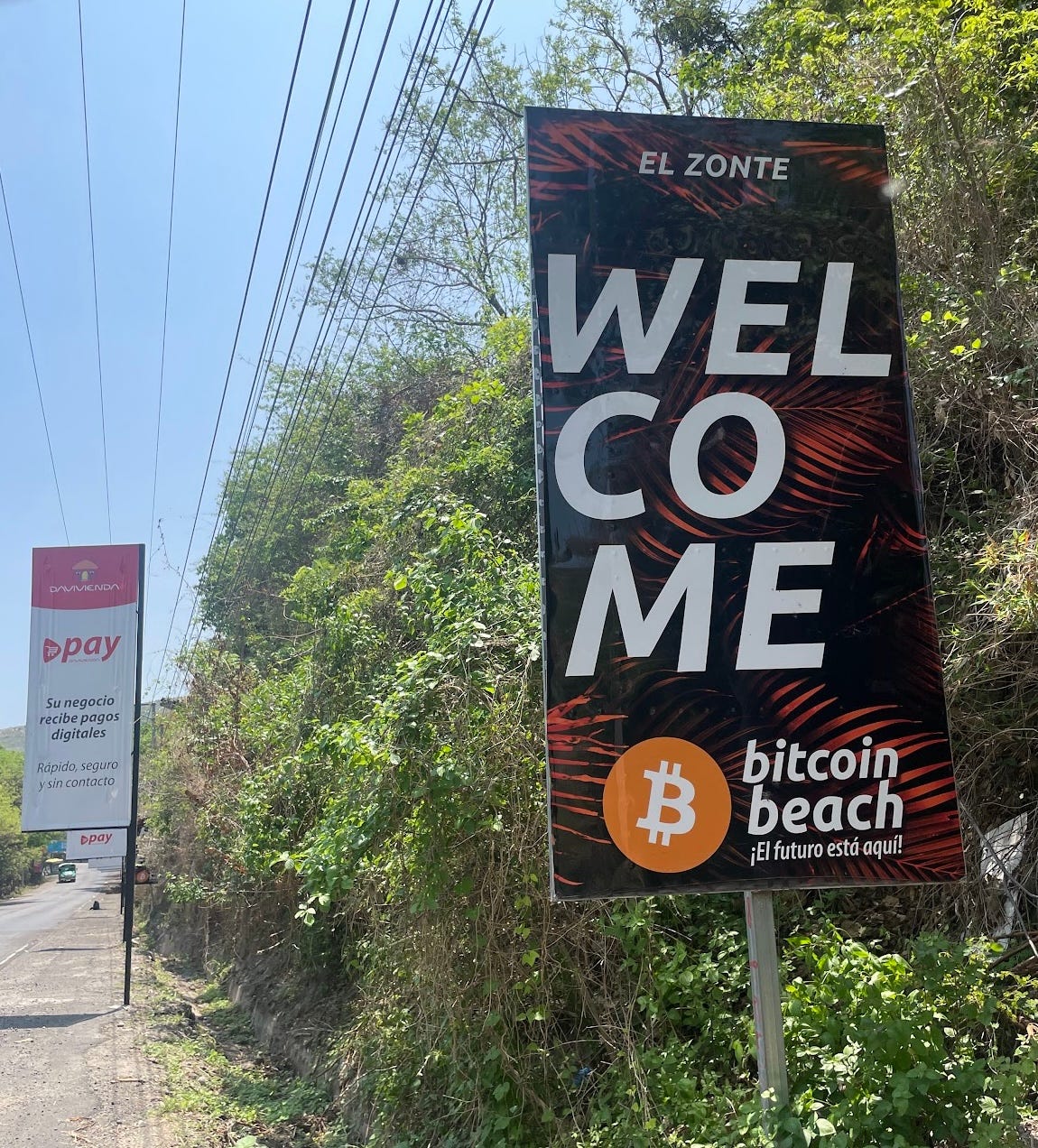
For Kenyans using M-PESA to transfer money between accounts, “airtime credits” are primarily a means to an end — a means of transferring and storing the currency they actually care about and trust, the Kenyan shilling. And it seems that in El Salvador, a similar case holds true — Bitcoin is just a means to an end for transferring US Dollars.
I don’t think this should actually surprise us, at all. According to the World Bank in 2022, “two-thirds of adults worldwide now make or receive a digital payment,” a number that’s likely risen since. Like so many others around the world, it’s understandable that some Salvadorans might prefer an easy phone payment to carrying around cash (something which, up until very recently, presented an exceptionally large risk in El Salvador.)
And what of their trust in crypto? While I hardly talked with a representative sample of Salvadorans, we shouldn’t be surprised to learn that some — like the majority of Americans — don’t trust the long-term safety and reliability of Bitcoin, either.
Many I met seemed to like “Bitcoin” because it let them get away from cash. But whether that meant using crypto or dollars or anything else didn’t much seem to matter.
Which begs the question — if El Salvadorans don’t really care about crypto itself, how fragile is cryptocurrency to being disrupted by any other digital payments technology?
Just Another Boring Payments App
All this begs an important question for the future of cryptocurrency. If Salvadorans who like using “Bitcoin” don’t care about Bitcoin itself — if they view it as a mere technology for sending and receiving dollar payments — then how fragile is cryptocurrency to disruption by any other digital payments technology?
Indeed, Larry, the barista, told me he’d recently received access to beta test Cash App, used widely in regions of the US for years. He said he actually prefers using Cash to the popular Salvadoran digital wallets he’d tried, like Chivo, because it’s less buggy. Larry liked that Cash just felt smoother, regardless of the currency he used.
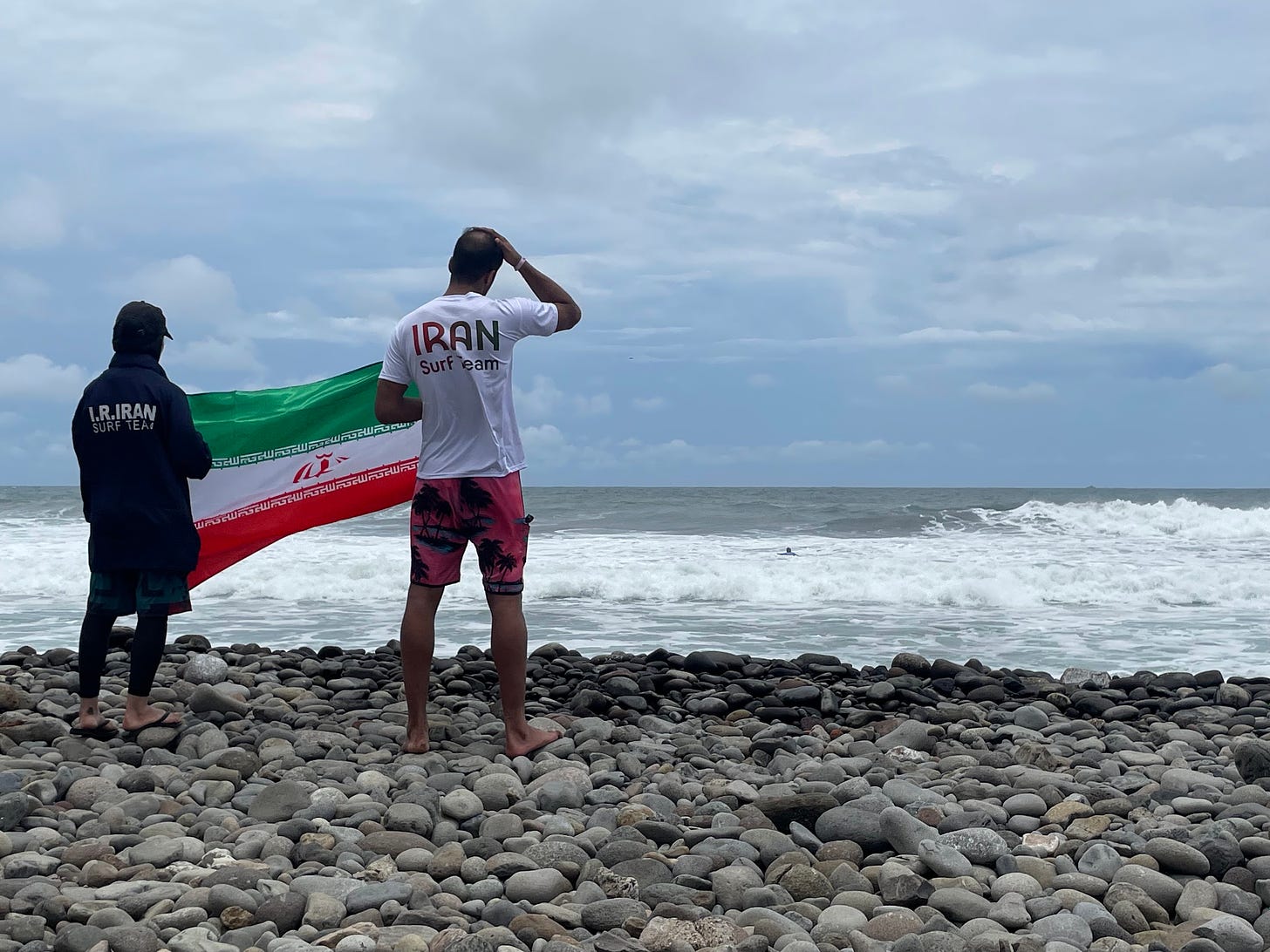
So even if Larry, one of the few who told me he likes using Bitcoin, can be won over by an easier app experience, what does this mean for the success of cryptocurrency — not only in El Salvador, but everywhere else?
For many, it seems, what’s important is an easy user experience. Good UX, not a cohesive ideology of financial liberation — and again, should we be surprised?
As limited as its use is today, I wonder if Bitcoin can even sustain its current popularity in El Salvador should an established international payments app — like Venmo, Cash, AliPay, or PayTM — ever arrive. Not only are these apps easier to use and more reliable, they also eliminate the need to transfer funds between Bitcoin and US Dollars, as Elizabeth frequently does. And if foreign tourism continues to grow, the incentive for local users to adopt payments apps that work across national borders will only grow with it.
For many, it seems, what’s important is a convenient user experience. Good UX, not a cohesive ideology of financial liberation.
In fact, another blockchain technology already exists to support the ways I saw Elizabeth, Larry, and others using crypto apps to effectively transfer dollars between each other. Circle and Tether are just two of the companies enabling payments via stablecoin, digital currencies pegged to so-called “fiat” currencies like the US Dollar. Tokens like these maintain some of crypto’s novel value — like transparency, and rapid international transactions — without the challenges of variability and trust inherent in tokens like Bitcoin. Indeed, stablecoin use in Argentina has recently skyrocketed in the wake of mounting inflation and the government’s embrace of it.
“A Potemkin Village Vibe”
While writing this post, I came across a tweeted video from Alex Gladstein, Chief Strategy Officer at Human Rights Foundation, who discussed crypto in El Salvador on WBUR’s Endless Thread podcast. It shows him tipping a barista in El Zonte using crypto — at the same coffee shop, in fact, where I met Elizabeth — and encouraging his followers to send her tips, too. The next day, he posted that Karla had been sent over 300,000 Satoshis, today worth more than $2,000 USD, from over 20 countries.
And that’s amazing — for Karla. But does it say anything useful about the value of Bitcoin for the other six million Salvadorans who aren’t lucky enough to be featured on a Twitter account with more than 200k followers?
Displays like this convey a feeling that the town’s cryptocurrency advocates might be trying a bit too hard. The town possessed a “Potemkin Village vibe,” said Craig Toennies, an American who’d run a hostel in El Zonte until the pandemic, of the atmosphere a few years ago during Bitcoin Week preparations. And it still does.
If anything, tweets like Gladstein’s reinforce the creeping feeling that El Zonte has been subtly invaded by a sneaky sort of “crypto colonialism.” A feeling we’ve seen this play before, in other places and other times: a white man (usually a man) brings his technological innovations to some impoverished shore, and then convinces the world — and himself — that he’s lifting a whole people out of poverty. And what’s the harm if he makes a lot of money in the process?
Of course, there are others, like President Bukele, who believe in Bitcoin qua Bitcoin, and not just as means to an end toward smooth financial transactions. And they are not white, nor foreign. But at least those few I met who were truly enthusiastic about Bitcoin were all male, all technologically-savvy, and seemingly upwardly mobile — qualities keenly reminiscent of cryptocurrency enthusiasts nearly anywhere else.
All this reinforces the creeping feeling that El Zonte has been invaded by a sneaky sort of “crypto colonialism.” A feeling that we’ve seen this play before, in other places and other times: a white man brings his technological innovations to some impoverished shore, and then convinces the world — and himself — that he’s lifting a whole people out of poverty.
And what’s the harm if he makes a lot of money in the process?
I think the modern colonial feeling that pervades El Zonte has surfaced in certain media coverage of Bitcoin’s rollout in El Salvador too. Articles I’ve read espouse the technology’s potential to lift Salvadorans from poverty, and the need to educate — one might even say “convert” — Salvadorans, often portrayed as poor, illiterate, and perhaps naive, into Bitcoin Believers. And whether positive or negative, the story told about Bitcoin adoption in El Salvador has frequently cast its citizens as exotic, “other,” somehow unique in their approach to a disruptive technology.
But as we’ve seen, some Salvadorans both enjoy the convenience of Bitcoin payment apps, and feel wary of the currency’s fluctuations and ephemerality. Which is what we might expect of other rational people, whether in El Salvador, America, or anywhere else, when given the chance to move from cash to digital payments.
I’d argue that “cryptocurrency” in El Salvador today is in fact hardly a currency at all — it’s a transfer technology, a means of easily moving dollars from one person to another. I don’t think many Salvadorans even really care if Bitcoin is the underlying method for making it happen.
To return to a question at the beginning: if it looks like M-PESA and quacks like M-PESA — or any other digital payments app — is it a cryptocurrency? Indeed, is it even a “currency” at all if few even trust Bitcoin to store value over the long-term?
Or is Bitcoin in El Salvador just the technical underpinning allowing for easy digital payments — a simple means to an end awaiting disruption by stablecoins, Venmo, or one of a dozen other apps?
After my time in El Salvador, I’m much more inclined to believe it’s the latter. Whether in El Salvador, America, or anywhere else, I’m increasingly convinced that crypto is a fun investment — or rather, lottery ticket — and an interesting technology for financial transfers.
But not a new, liberating currency promising to release us from global financial institutions. At least not yet, and not anytime soon.
Song of the Week: San Salvador — Enfans de la campagna. The band actually takes its name from San Salvador, *France*, but I found it and loved it too much not to share.





